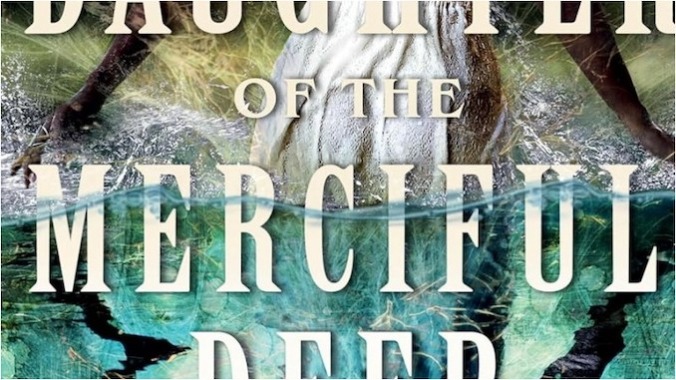Rebirth Below the Waves in Leslye Penelope’s Daughter of the Merciful Deep

Leslye Penelope’s excellent The Monsters We Defy marked her as an author to watch in the historical fantasy space. Her new novel, Daughter of the Merciful Deep, is another strong entry in that genre, set during a similar historical era in a very different region of the United States. While The Monsters We Defy is a strong, urban fantasy set during the Harlem Renaissance, Daughters of the Merciful Deep takes on the hidden history of America’s drowned Black towns, and the communities destroyed and dispersed in the name of progress.
Jane Edwards hasn’t spoken since she was eleven. She’s locked away a part of herself, along with her voice, following the mantra “never backward, only forwards”. It’s the motto of her beloved town, Awenasa, and it’s also the thing that keeps her from crumbling under the weight of a secret she’s been carrying for twelve years.
But Awenasa is in danger. White men from the Authority have come into town, telling people who own their land that they need to accept a sale offer from the government and move off the property. They’ve built a damn, and soon, the Noxahatchie, the river that borders the town, will cover everything the people of Awenasa have built. Their community is small, but caring, and it’s got plenty of thriving businesses that will have to start over elsewhere, separate from their neighbors and friends. Old George, who founded the town on land where he’d once been enslaved, is at his wits’ end; even if he takes everything the government says they’ll give him, it’s not enough to start over. It’s not enough to bring everyone with him.
Jane, who takes it upon herself to know everything that’s happening in Awenasa, isn’t sure what can be done. But she notices right away that the men from the Authority aren’t the only strangers in town. This second stranger, who calls himself Moses, is the spitting image of a man she once saw killed—the man her sister had planned to marry before he was convicted of murdering a white girl. And when Jane sees Moses perform feats that look like miracles, a tiny seed of hope begins to grow.
At least, it does until Moses tells her that saving the town will fall on her shoulders. Jane can’t bear the responsibility—she can’t even bear the thought of being the chairperson of a town celebration! So she enlists Daniel, her best friend (and maybe something more), to serve as the voice that people will listen to.
But Penelope isn’t content to let Jane stay in the shadows for long (as much as the character might prefer it). The story is all about bringing things into the light: secrets, relationships, love, and even faith. It’s about remembering lost things, about how to both honor the past and let it go, and about holding only the lessons to be learned from it rather than preserving specific moments. It’s also about ché, the energy that fills people with magical power, and how a community’s ché can be much greater than the sum of its parts.
-

-

-

-

-

-

-

-

-

-

-

-

-

-

-

-

-

-

-

-

-

-

-

-

-

-

-

-

-

-

-

-

-

-

-

-

-

-

-

-








































